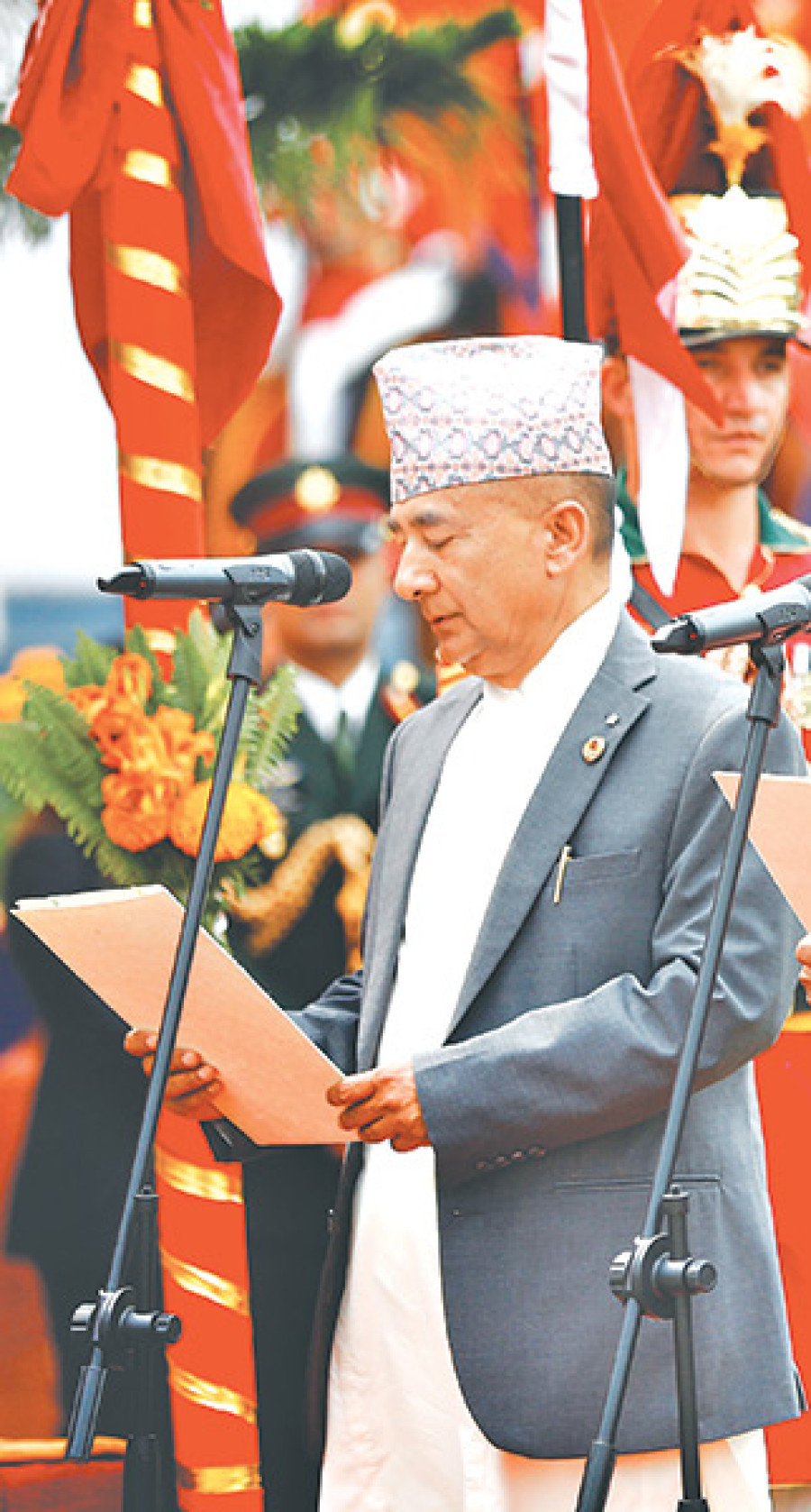Money
New finance minister faces an uphill task
Newly-elected Prime Minister Sher Bahadur Deuba has appointed his close confidante Gyanendra Bahadur Karki as the finance minister. Karki, who hails from the eastern district of Bhojpur, assumed the post on Wednesday right after taking the oath of office.
Rupak D. Sharma
Newly-elected Prime Minister Sher Bahadur Deuba has appointed his close confidante Gyanendra Bahadur Karki as the finance minister. Karki, who hails from the eastern district of Bhojpur, assumed the post on Wednesday right after taking the oath of office.
This is Karki’s second stint as a minister. The 60-year-old was the water resources minister in the government led by late Girija Prasad Koirala in 2006.
The Achilles heel of Karki, like two of his predecessors Krishna Bahadur Mahara and Bishnu Poudel, is that he does not have an academic background in economics or finance. Karki has a Master’s degree in political science from Tribhuvan University and has completed a non-degree course in political affairs from Heidelberg University in Germany.
This is the first time in the recent history the Nepali Congress, Nepal’s largest political party, had appointed someone without any economics or finance background as the finance minister.
Although many refer to Karki as a modest person with unpretentious demeanour, at least two sources, who did not want to be named, said a political party like Nepali Congress “should not have appointed him to the technical post”.
“The selection was made not on the basis of merit but to strengthen [PM] Deuba’s faction in the party,” a senior leader of the Nepali Congress told the Post on condition of anonymity, adding, “We weren’t even consulted when ministers were chosen.”
But again there is a school of thought that says finance ministers without academic background in economics or finance tend to listen more to others and generally come up with pragmatic policies.
Only time will tell whether Karki can rise to the occasion and prove himself as an able finance minister.
Fortunately, Karki, who became a lawmaker under the proportional representation system, has been handed over a healthy economy by his predecessor. The economic growth in this fiscal year is expected to hit 23-year high of 6.9 percent, inflation has cooled down to annual average of 5 percent, foreign exchange reserve is sufficient to cover merchandise imports of 13.3 months and balance of payments is in surplus.
But things can unravel quickly if problems in Qatar, one of the largest recipients of Nepali labourers, which is facing Saudi Arabia-led diplomatic and economic blockade, deepen. This can reduce the flow of money that Nepalis working there send home, hitting consumption in the country, which is helping fuel the economic growth.
Such a situation will also exert pressure on the balance of payments.
As of mid-April, inflow of money into the economy had surpassed outflows by Rs50.8 billion, helping balance of payments to remain in the positive territory. But this situation can reverse if remittance inflow squeezes and imports continue to surge. This will cause erosion in foreign exchange reserve, leaving Nepal with less foreign currency to finance imports.
The new finance minister should immediately take appropriate measures and keep the situation under control.
The new finance minister should also work towards implementing the budget for the next fiscal year launched on May 29. The focus should especially be on expediting the capital expenditure, which can bridge infrastructure gap and spur economic growth.
One of the reasons for low capital spending in the country is reluctance expressed by government officials to take ownership of assigned tasks. This is delaying implementation of projects and programmes and raising project costs by 8.8 percent per year if average annual inflation of the last five years is adjusted.
To contain this problem, the Monitoring and Evaluation Act must be introduced to hold government bodies liable for losses triggered by delay in implementation of development projects and programmes. The National Planning Commission has already framed a draft of this bill. This should now be tabled in Parliament.
Last but not the least the National Reconstruction Authority, the apex body overseeing post-earthquake reconstruction, must be given full authority to conduct its works. More than two years have passed since Nepal was struck by devastating earthquakes, but many are still living in temporary shelters, while many students haven’t been able to enter into proper classrooms. This is a pity, which Karki must address.




 9.89°C Kathmandu
9.89°C Kathmandu















